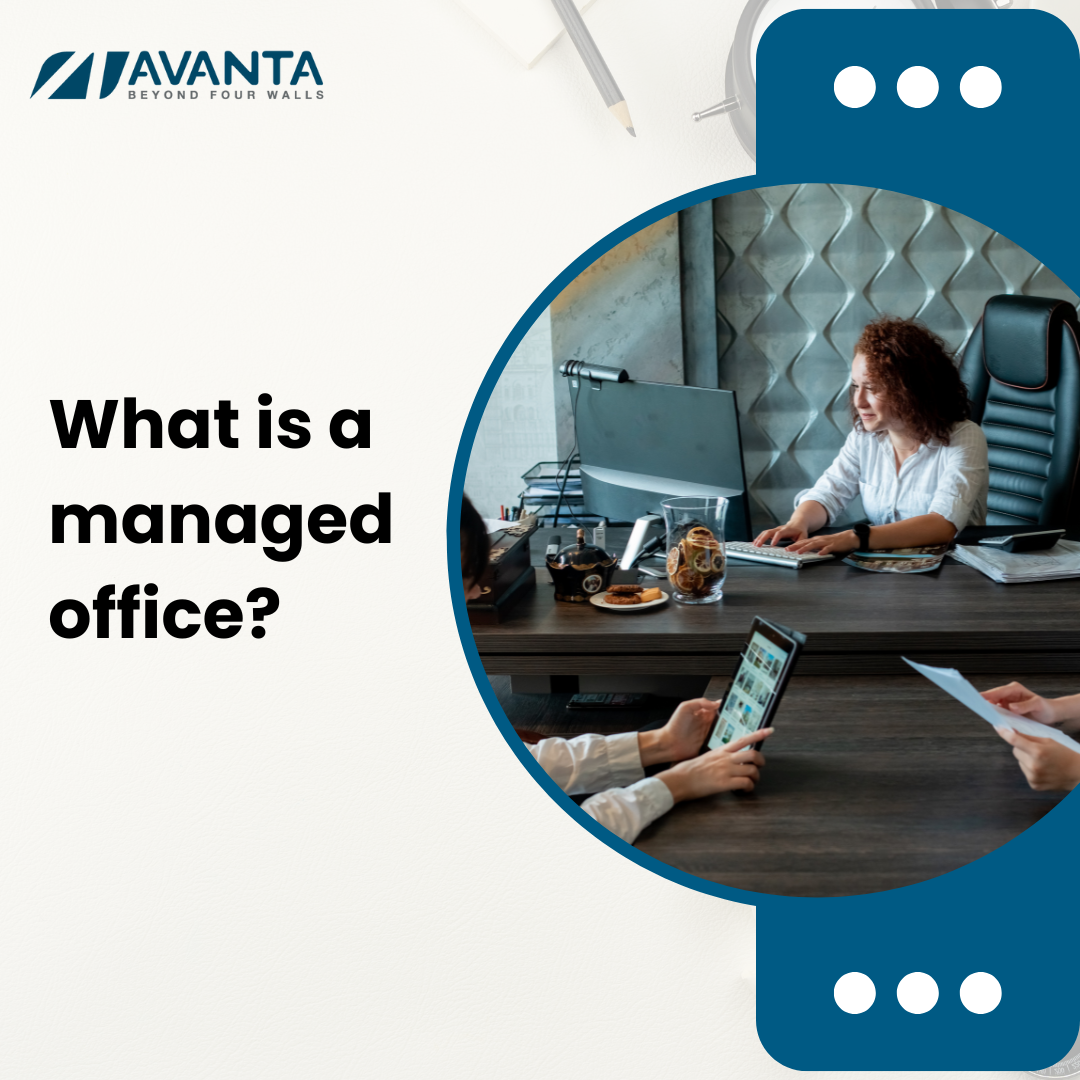What is a Managed Office?

The workspace landscape, having been dynamic, has also given businesses freedom from the shackles of old, long-term office leases. An increasingly popular solution is the managed office, a fully customised, ready-for-use workspace that is operated and maintained by a third party. Whereas coworking centres typically pursue a shared environment, managed offices allow for privacy, a brand identity, and even a bespoke build to meet the very exact operational needs of the business.
The flexible office space market is expected to expand at more than 15% CAGR by 2027, rendering India a giant hub for such solutions. Providing a backdrop, a 2024 report of Knight Frank states that managed offices at present, constituting nearly 40% of flexible workspace demand, are primary centres for enterprises seeking some flexibility in size, smooth operations, and the least capital outlay across major Indian cities. Pune, Bangalore, Gurgaon, and Hyderabad lead this adoption curve, with Tier-2 cities fast catching up.
What is the difference between coworking and managed office space?
While both coworking spaces and managed offices come under the title "flexible workspace," they differ greatly in application and customer profile.
Coworking space are shared in nature where individuals, freelancers, startups, and small teams work alongside each other. Hence, such spaces are community-oriented, with networking events and affordability as their primary thrust. Coworking is membership based-per seat in most cases-and the amenities, such as meeting rooms, breakout areas, and common lounges, are shared by different tenants.
An office space that is managed is a completely private workspace created just for one client. The provider designs, builds, and manages the offices following the company brand, workflow, and culture. In this respect, they may be custom layouts which include branding elements, special types of meeting rooms, secure areas for servers, or features for compliance in certain sectors. It is the absolute opposite of coworking-they focus on exclusivity, confidentiality, and operational control while being flexible with lease terms.
In short, coworking is for community and low entry cost, whereas managed offices offer a higher level of privacy with customisation and enterprise-grade infrastructure.
Who should consider a managed office?
Managed offices suit larger or medium enterprises, teams working on a project basis, and quickly scaling startups requiring the space while avoiding the hassle of handling fit-outs, maintenance, and compliance.
Established Corporations Expanding into New Markets
If businesses are undergoing a new geography, then a managed office saves them from a capital outlay in infrastructure. The space is immediately usable, with flexible contracts that scale up or down, depending on the market's response.
Startups Moving Out of Coworking
Generally, high-growth startups tend to outgrow the open environment shared by coworking spaces. This is when their expanding teams need separate meeting rooms or a more secure IT setup or have compliance requirements that call for the control and professional image a managed office offers.
Project- or Contract-Based Teams
Managed offices offer an advantage for companies working short- to medium-term projects (e.g., IT outsourcing contracts, research projects, or creative campaigns) because they can tailor the office term to the project lifecycle.
Areas Requiring High Confidentiality
Industries like finance, legal services, R&D, and defence technology require strict security mechanisms and access control. Managed offices guarantee the provision of dedicated servers, private entry points, and confidentiality provisions that the common coworking space is incapable of accommodating.
Essentially, who should look into a managed office? Any organisation that values privacy and customisation along with operational freedom, but does not want to be bothered with the intricacies of managing a traditional leased space, should look into this avenue.
Are managed offices more expensive than regular leases?
Raising an eyebrow, managed offices are more expensive on a per-square-foot basis than the customary long-term commercial lease. However, when seen through a cost analysis, the situation changes. Under a traditional lease, the companies accruing the rents pay all of the upfront fit-out costs, furniture, utilities, IT infrastructure, maintenance staff salaries, property taxes, and sometimes even for renovation or compliance upgrades. All of these add to a cheap sum if the place is in a city's higher section.
An office, on the other hand, considers most of the aforesaid expenses into one monthly fee. The provider deals with:
- Design and construction of fit-out
- Furniture and workspace ergonomics
- Utilities, internet access, and facility management
- Cleaning, security, and reception
- Repairs and ongoing maintenance plus upgrades
All-inclusive pricing means that the seats per price may be calculated to cost more than raw leased space, but the absence of capital expenditure, lower operational overheads, and scalable space management present a strong argument in the long run for cost benefits arising from leveraged flexibility. For instance, at a business centre, an enterprise would pay roughly ₹1 to 1.5 crore upfront for fitting 5,000 sq. ft.
Final Thoughts
Managed office spaces have become a unique third option, complementary to traditional leased office space and community-driven coworking space. They offer corporate tenants the privacy and customisation of a typical office with no obligation for the long duration of the lease and capital costs associated with a traditional lease. As the world of business is shifting to flexible, agile, scalable, and employee-centric design, managed offices will be an important element of the workspace strategy. They provide companies the ability to enter into new markets quickly, drive down operational costs, and offer employees the ability to walk into a professional and furnished space from the first day of occupancy. Whether you are a growing startup that has exhausted your coworking opportunities, a multinational entering a new market for the first time, or a specialised team that has security parameters, a managed office can give you the right mix of flexibility and control, making it the most viable option in a very competitive business environment.






